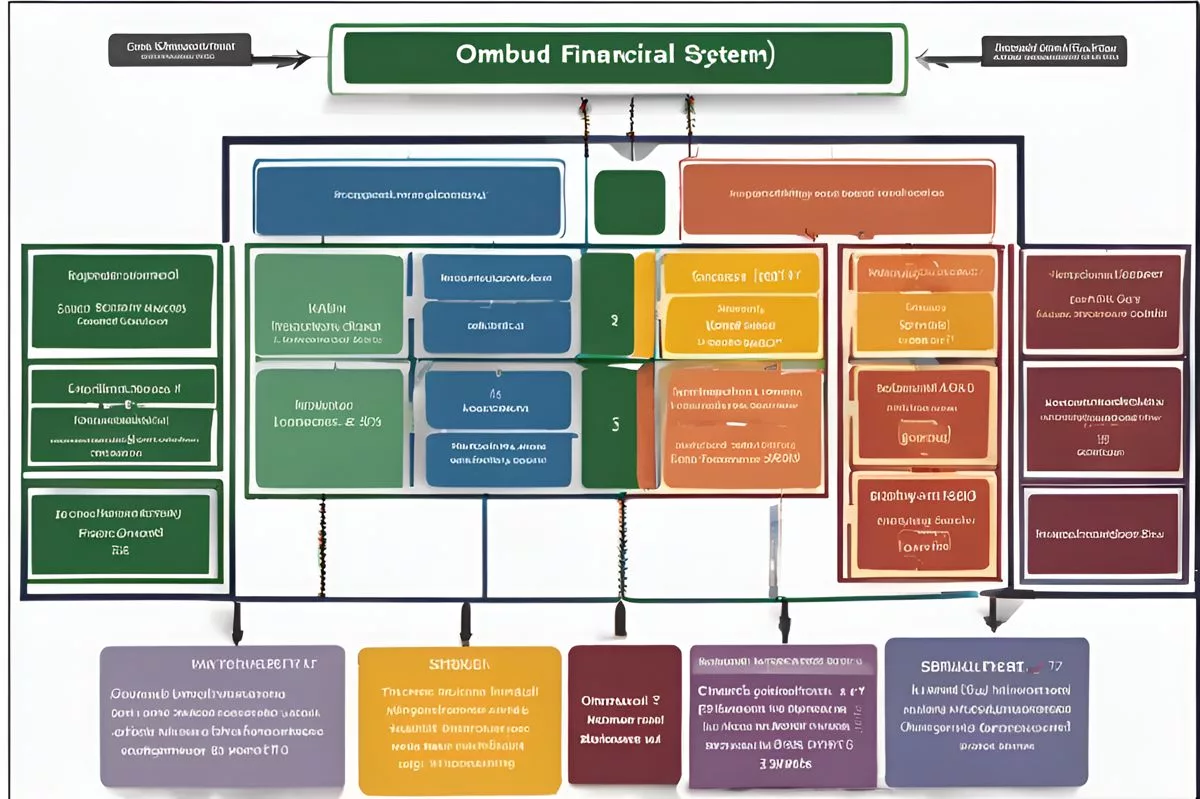South Africa’s financial ombud system is undergoing major reforms with the launch of the National Financial Ombud Scheme and the Retirement Funds Ombud. The changes are based on recommendations from a World Bank diagnostic study and aim to enhance consumer safeguards and promote better results within the financial services industry. The reforms will require legislative amendments and the National Financial Ombud Scheme is expected to start operations on March 1, 2024, leading to a promising future for South Africa’s financial sector.
What is South Africa’s new financial ombud system policy?
The National Treasury in South Africa has proposed a new policy named ‘A Simpler, Stronger Financial Sector Ombud System.’ The policy aims to enhance the financial ombud system by restructuring the current seven ombud programs into two, and implementing measures to improve visibility, accessibility, and decision enforcement. The proposals will require legislative amendments, and the National Financial Ombud Scheme South Africa is expected to start operations on 1 March 2024.
South Africa’s financial sector ombud system is about to enter a fresh phase of evolution as the National Treasury unveils its Policy Position Statement, aptly named ‘A Simpler, Stronger Financial Sector Ombud System’. This statement represents an affirmative move geared towards bolstering the financial ombud system, backed by reform suggestions drawn from an insightful study carried out by the World Bank in 2021, titled “South Africa – Financial Ombud System Diagnostic”. The study undertook an unbiased assessment of the country’s financial ombud system, identifying potential areas of enhancement to boost consumer safeguards and promote superior results within the financial services industry.
Tracing the Evolution and Future Reforms
Previously, a discussion paper named ‘A Known and Trusted Ombud System for All’ (2017) had laid the groundwork for preliminary modifications to the ombud system. These recommendations were subsequently integrated into the Financial Sector Regulation (FSR) Act (Act 9 of 2017) under the Twin Peaks financial sector regulatory reform. The World Bank’s diagnostic study identified possible overlaps, voids, and inconsistencies in the financial ombud system’s structure and its individual ombud programs, leading to suggestions for more reforms.
The study scrutinized various ombud programs, including industry programs like the Credit Ombud and the Ombudsman for Long-term Insurance, and statutory programs like the Pension Funds Adjudicator and the Ombud for Financial Services Providers (FAIS Ombud). These insights, coupled with public input, have guided the National Treasury‘s strategy towards overhauling the financial ombud system to bolster the market conduct framework in South Africa.
Key Reform Proposals and Their Impact
In response to these findings, crucial components of the proposed reform, which the National Treasury endorses, include a structural revamp of the ombud system. The current seven ombud programs will be consolidated into two, encompassing the establishment of a novel National Financial Ombud (NFO), which will be independent of the industry and government, replacing six of the existing seven programs. A Retirement Funds Ombud (RFO) will succeed the current Pension Funds Adjudicator, and a board will be set up to guarantee independence, effectiveness, and efficiency.
The Treasury recognizes the intricacies involved in transitioning the operations of the RFO to the NFO. Nonetheless, it envisions this transition occurring in the medium term, once the NFO is completely functional. The proposal also suggests changes to the Ombud Council, including title alterations, appointment of its CEO, and a subsequent review of its powers in light of the simplified ombud system.
Enhancing the Ombud System: Measures and Implementation
Apart from these structural changes, the reforms also aim to improve visibility and accessibility, enforce uniform procedures, and ensure decision enforcement across the ombud system. These measures will also address improvements to significantly curtail jurisdictional overlaps and gaps.
The National Treasury’s policy position statement, along with a comprehensive feedback statement and an implementation plan, are crucial steps in promoting the Treasury’s stance on the reforms. This also enables a response to consultation comments and aids the ombud programs and the Ombud Council to work towards realizing a restructured setup.
Full execution of these proposals will require legislative amendments. In the interim, the National Treasury expresses gratitude for the voluntary merger of four current industry schemes (Credit, Banking, Long-term Insurance, and Short-term Insurance) to create a new, more efficient industry scheme, the National Financial Ombud Scheme South Africa (NFO). The NFO is slated to start operations on 1 March 2024, following approval by the Ombud Council. This combination signifies a noteworthy progress towards the broader proposed reforms and will enable their execution.
A Promising Future for South Africa’s Financial Sector
South Africa’s financial sector is unmistakably on a transformative path, one that promises simplicity, strength, and a commitment to delivering superior results for all stakeholders. The National Treasury is leading this change with proactive policy measures, the benefits of which will likely be seen by the sector in the long run. Despite the journey’s complexity and potential hurdles, the strong plan and unwavering commitment point towards a promising future for South Africa’s financial ombud system.
1. What is the new financial ombud system policy in South Africa?
The new financial ombud system policy in South Africa is named ‘A Simpler, Stronger Financial Sector Ombud System.’ It aims to restructure the current seven ombud programs into two, and implement measures to improve visibility, accessibility, and decision enforcement.
2. How did the World Bank contribute to the reforms in South Africa’s financial ombud system?
The World Bank carried out a study in 2021 titled “South Africa – Financial Ombud System Diagnostic,” which identified potential areas of enhancement to boost consumer safeguards and promote superior results within the financial services industry. The study’s recommendations were incorporated into the National Treasury’s strategy towards overhauling the financial ombud system.
3. What are the key reform proposals for the financial ombud system in South Africa?
The key reform proposals for the financial ombud system in South Africa include consolidating the seven existing ombud programs into two, establishing a new National Financial Ombud (NFO) that is independent of the industry and government, and setting up a Retirement Funds Ombud (RFO) that will succeed the current Pension Funds Adjudicator.
4. How will the reforms impact the financial ombud system in South Africa?
The reforms aim to enhance the financial ombud system by improving visibility and accessibility, enforcing uniform procedures, and ensuring decision enforcement across the ombud system. They will also address jurisdictional overlaps and gaps.
5. What is the timeline for the implementation of the new financial ombud system in South Africa?
The National Financial Ombud Scheme South Africa is expected to start operations on 1 March 2024, pending approval by the Ombud Council. The transition of the Retirement Funds Ombud to the National Financial Ombud is expected to occur in the medium term, once the NFO is fully functional.
6. What is the future outlook for South Africa’s financial sector?
The reforms in South Africa’s financial ombud system promise simplicity, strength, and a commitment to delivering superior results for all stakeholders. Despite potential hurdles, the strong plan and unwavering commitment point towards a promising future for South Africa’s financial sector.










